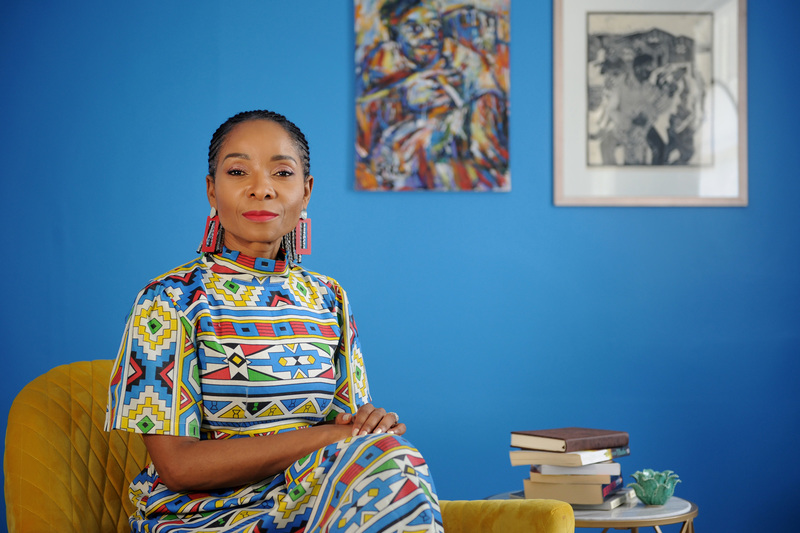Remaining vigilant and complying with COVID-19 protocols
13 November 2020 | From Kgethi
Dear students and colleagues
I wish to thank the thousands of staff and students that are adhering to all the health and safety regulations and guidelines related to COVID-19. All of you are helping to keep each other and the campus safe while continuing to work so hard to ensure we reach our goals as an institution.
As COVID-19 wears on, it may be tempting to drop your guard. But the virus is as infectious and dangerous as it was seven months ago, when lockdown began. I urge you all to continue keeping yourselves and those around you safe.
We are seeing news reports of superspreader events in South Africa and other countries that are now experiencing a second wave of COVID-19. In his speech to the nation on 11 November, President Cyril Ramaphosa mentioned areas of concern around the country, with a focus on the rise of cases in the Eastern Cape. As he pointed out, it might be tempting, as the holiday season approaches, to attend more events and to be with friends and family. But it is critical that we limit our engagements as much as we can and that, when we do gather in small groups, we ensure that we do all we can to stay safe.
As President Ramaphosa said: “What we are witnessing in the Eastern Cape should be a wake-up call to all of us, that we cannot relax and we cannot be complacent. But we can avoid a second wave if we each play our part, if we remember what we need to do to keep ourselves and others safe.” It is for this reason that the national state of disaster has been extended to 15 December.
Apart from protecting others, it is also in your own interests to avoid crowded, confined and enclosed spaces and places that do not allow space for social distancing.
We each also have a responsibility to avoid putting those around us at risk. If I test positive, for instance, my family and anyone I have had contact with will have to go into quarantine and may not be able to go to work, attend a class or take an exam.
I am very grateful for everything you are doing to protect yourself and others during this time. I know it is not always easy, but it is essential to continue to adapt to this new reality.
Please continue to keep a distance of 1.5 metres from other people, wash and sanitise your hands frequently and wear a mask in public. These three steps need to become like second nature.
Take good care of yourselves, and those around you, for the sake of us all.
With best wishes
Professor Mamokgethi Phakeng
Vice-Chancellor
Read previous communications:
 This work is licensed under a Creative Commons Attribution-NoDerivatives 4.0 International License.
This work is licensed under a Creative Commons Attribution-NoDerivatives 4.0 International License.
Please view the republishing articles page for more information.
Coronavirus Disease 2019 updates
COVID-19 is a global pandemic that caused President Cyril Ramaphosa to declare a national disaster in South Africa on 15 March and implement a national lockdown from 26 March.
UCT is taking the threat of infection in our university community extremely seriously, and this page will be updated regularly with the latest COVID-19 information.
Daily updates
Campus communications
Resources
Video messages from the Department of Medicine
Getting credible, evidence-based, accessible information and recommendations relating to COVID-19
The Department of Medicine at the University of Cape Town and Groote Schuur Hospital, are producing educational video material for use on digital platforms and in multiple languages. The information contained in these videos is authenticated and endorsed by the team of experts based in the Department of Medicine. Many of the recommendations are based on current best evidence and are aligned to provincial, national and international guidelines. For more information on UCT’s Department of Medicine, please visit the website.
To watch more videos like these, visit the Department of Medicine’s YouTube channel.
Useful information from UCT
External resources
News and opinions

As the COVID-19 crisis drags on and evolves, civil society groups are responding to growing and diversifying needs – just when access to resources is becoming more insecure, writes UCT’s Prof Ralph Hamann.
03 Jul 2020 - 6 min read Republished
The Covid-19 crisis has reinforced the global consequences of fragmented, inadequate and inequitable healthcare systems and the damage caused by hesitant and poorly communicated responses.
24 Jun 2020 - >10 min read Opinion
Our scientists must not practise in isolation, but be encouraged to be creative and increase our knowledge of the needs of developing economies, write Professor Mamokgethi Phakeng, vice-chancellor of UCT, and Professor Thokozani Majozi from the University of the Witwatersrand.
09 Jun 2020 - 6 min read Republished
South Africa has been recognised globally for its success in flattening the curve, which came as a result of President Ramaphosa responding quickly to the crisis, writes Prof Alan Hirsch.
28 Apr 2020 - 6 min read RepublishedStatements and media releases
Media releases
Read more
Statements from Government
In an email to the UCT community, Vice-Chancellor Professor Mamokgethi Phakeng said:
“COVID-19, caused by the virus SARS-CoV-2, is a rapidly changing epidemic. [...] Information [...] will be updated as and when new information becomes available.”
We are continuing to monitor the situation and we will be updating the UCT community regularly – as and when there are further updates. If you are concerned or need more information, students can contact the Student Wellness Service on 021 650 5620 or 021 650 1271 (after hours), while staff can contact 021 650 5685.


























































































































































































